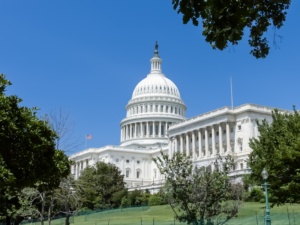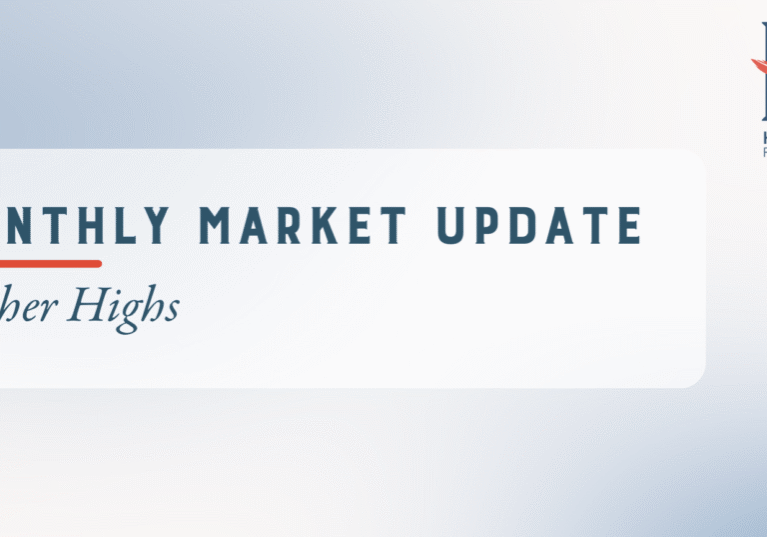There was a lot of news to tune into last week. Let’s take a look at what’s been happening and what it means for your finances.
Taxes
The big legislative news last week was that the $3.5 trillion budget resolution that was previously approved by the Senate also passed the House.
 The budget resolution is essentially a blueprint, or framework, for a spending package. Democrats will now start working on writing the spending package, or budget reconciliation bill. It appears they are targeting September 15th to finish the drafting of the bill.
The budget resolution is essentially a blueprint, or framework, for a spending package. Democrats will now start working on writing the spending package, or budget reconciliation bill. It appears they are targeting September 15th to finish the drafting of the bill.
The House has set a deadline of September 27th to vote on it, and it would then go to the Senate. As a reminder, the bill will likely include many of the spending priorities outlined in President Biden’s American Families Plan.
Expect to see things like:
- expanded Medicare
- universal prekindergarten and two free years of community college
- priorities focused on green energy
- higher taxes for corporations and wealthy individuals
Since late last year we’ve talked about the likelihood for higher taxes on individuals. Read two of our previous posts on this topic:
Are My Taxes Going Up? Part II
Based on last week’s developments, it seems we should know a lot more about future tax changes by the end of September.
Interest Rates
The Federal Reserve concluded it’s annual Jackson Hole meeting last week. There was much speculation in advance of the meeting. Investors wondered if the Fed would announce a timeline for beginning to remove monetary stimulus from the economy by tapering or ending it’s bond buying program. In the video below, our Chief Investment Officer, Bob Weisse, gives a brief 2 minute 36 second overview of what the Fed reported with respect to inflation, the job market, and the future of it’s quantitative easing (i.e., bond buying) program.
To learn more about our overall outlook for investments and inflation, read our 2021 Mid Year Outlook and our latest resource, Four Tools to Protect Against Inflation.
Afghanistan
Events unfolding in Afghanistan have, of course, dominated the headlines for the last several weeks. And last week we saw a tragic turn of events with the loss of several American lives amidst the efforts to fully withdraw from the country.
Prior to the violence of last week, U.S. equity markets had actually continued to make new all-time highs. This was the case even in the midst of the fall of Kabul. When asked about the impact of events in Afghanistan on equity markets, Bob commented:
The Afghanistan situation is hard on an emotional level. But the attack in itself isn’t enough to move markets. What we saw on the day of the bombing was markets pricing in a heightened risk of a more serious event. This could be increased U.S. military involvement in Afghanistan or a larger scale terrorist attack in Afghanistan or another country.
The reality is this:
What’s happening in Afghanistan has the greatest emotional impact. But it’s the first two topics that have the greatest potential to impact your financial plan.
- Legislation that impacts income and estate taxes will require you to revisit your financial plan to assess what needs to change.
- The continuing situation with COVID, and how it impacts the current economic growth path, Federal Reserve policy, interest rates, and inflation can impact your investments.
So, what can you do?
If you are like most, you need to recognize that you can’t do it all on your own. You need a partner you can trust who will be meticulous about staying on top of every last detail.
At Heritage Financial, we’ve been having active discussions with our clients and their other advisors for months in an effort to be proactive about future legislation and financial planning implications. In addition, our Investment Team has positioned our clients’ portfolios to include inflation protection through real assets. They’ve also incorporated dynamic bond strategies. These are strategies that can invest in bonds outside of the traditional government and investment grade corporate sectors. This gives us greater flexibility to protect asset prices in the event of rising interest rates.
To learn more about how you can work with the meticulous wealth management team at Heritage Financial, watch this short video about how we can work together. And if you are ready to speak to one of our Wealth Managers, contact us here.



